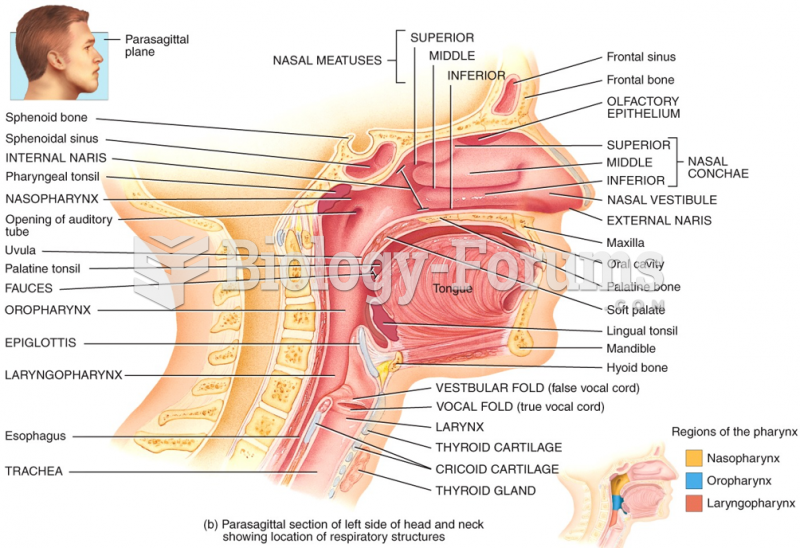|
|
|
The familiar sounds of your heart are made by the heart's valves as they open and close.
People who have myopia, or nearsightedness, are not able to see objects at a distance but only up close. It occurs when the cornea is either curved too steeply, the eye is too long, or both. This condition is progressive and worsens with time. More than 100 million people in the United States are nearsighted, but only 20% of those are born with the condition. Diet, eye exercise, drug therapy, and corrective lenses can all help manage nearsightedness.
Colchicine is a highly poisonous alkaloid originally extracted from a type of saffron plant that is used mainly to treat gout.
Asthma cases in Americans are about 75% higher today than they were in 1980.
Vaccines prevent between 2.5 and 4 million deaths every year.







